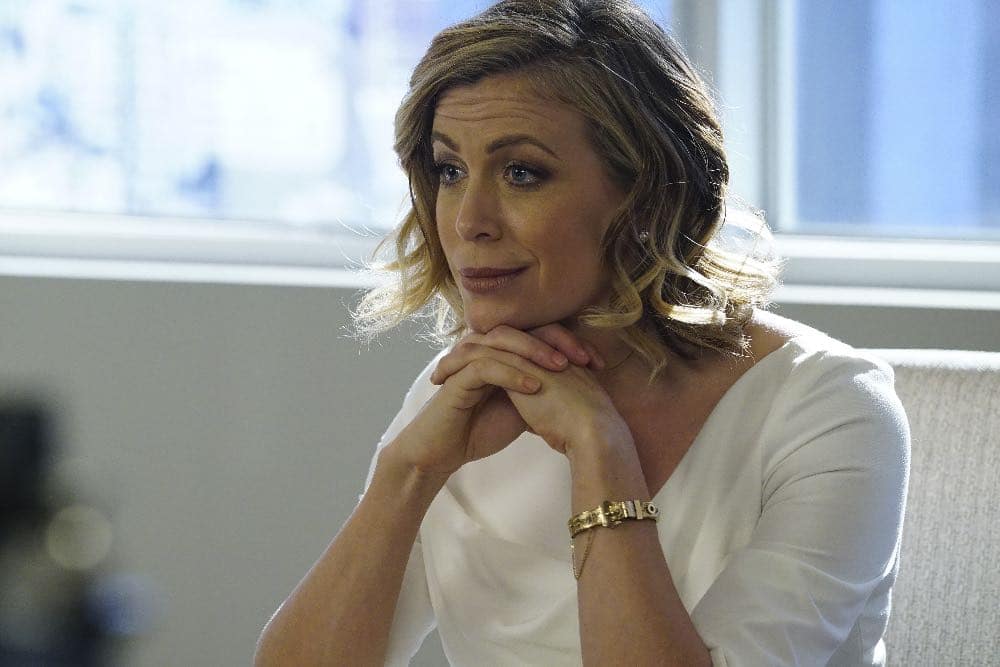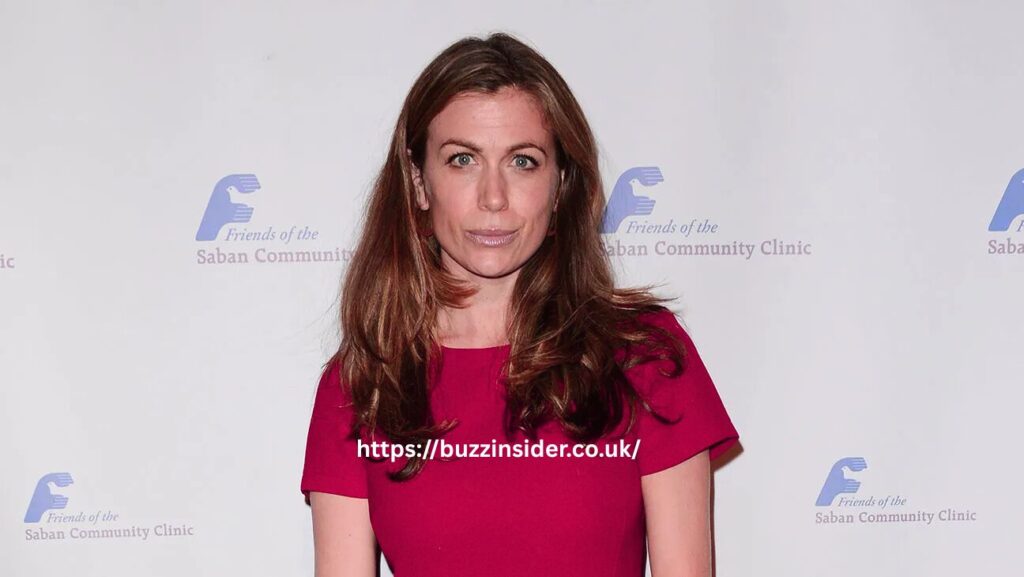If you’ve ever found yourself rooting for a character who’s complicated and stubborn in all the right ways, there’s a decent chance Sonya Walger had something to do with it. She doesn’t just “play” a role; she settles into it—shoulders, voice, tiny pauses—and suddenly this fictional person has history. That’s been the through-line of her career: a steady climb powered by craft more than hype, with a knack for choosing characters who feel lived-in.
Below is a grounded look at how she got here—from British beginnings to American TV staples to a late-career kick of fearless roles—and why her work keeps landing.
Early days Oxford mind, working actor grind
Sonya Walger grew up in London and, fun fact, studied English Literature at Christ Church, Oxford, graduating with first-class honors. It tracks when you watch her: she’s the sort of actor who cares about the sentence and the silence. She’s also bilingual (Spanish) thanks to her Argentine father—useful in a business that loves range. She started working in the late ’90s, doing the not-glamorous, necessary stuff: British TV parts, stage, and films that teach you how a set moves and how to deliver when the camera’s three inches from your face.
Her first U.S. pop came with HBO’s The Mind of the Married Man (2001–2002). It wasn’t the biggest show of that era, but it put her in rooms with people who go on to hire you again—a quiet career accelerant most fans never see. From there, she threaded the needle between prestige cable and network TV, which is a polite way to say she worked. A lot.
The “Penny” effect love, loss, and Lost
For many of us, Sonya Walger arrived fully formed as Penny Widmore on Lost—a character who could’ve been a trope (the faithful love interest calling from across time) but instead became one of the show’s emotional anchors. Penny had this warmth, but also steel, and Walger played both without blinking. You remember that phone-call episode? That’s the kind of scene actors dream about: a close-up, a voice, a relationship built in real time. It’s also the sort of work that quietly racks up peer attention; she notched award nominations during this era as “guest” but felt essential.
SEO note (for readers who care about discoverability): Penny Widmore, Desmond and Penny, Lost best episodes, Sonya Walger Lost, Lost phone call scene—these are search terms people still use. If you’re writing about her, sprinkle those in naturally.
Picking hard stuff on purpose: Tell Me You Love Me, FlashForward, Parenthood
After Lost, Sonya Walger didn’t take the easy victory lap. She jumped into Tell Me You Love Me (HBO), which poked at intimacy with a blunt knife. She played a woman trying to hold love and honesty in the same hand, and it was raw by design. Network TV followed with FlashForward (ABC), a high-concept thriller where she brought humane stakes to big sci-fi ideas, and later Parenthood (NBC), which is basically a master class in “make it feel like real family.” Different muscles, same result: believable people under stress.
The Shondaland turn and the con-artist polish
There’s a particular gear you need for Shondaland: velocity, wit, and the ability to sell a twist with your eyes. Walger fit right in, guesting on Scandal and then joining The Catch across from Mireille Enos and Peter Krause. She leaned into elegant danger—think cool surface, shark underneath. Even when the plotting swerved (as network shows sometimes do), her choices stayed clean: specific posture, controlled cadence, tiny tells.
Film side quests and why they matter
On the film front, Walger’s choices have often been under-the-radar projects that live on acting more than spectacle—Admission, The Gambler, Anon—plus indies where the camera lingers long enough to spot a lie. That’s a lane that rewards actors who can sustain tension without cutting every four seconds. Her recent thriller New Life (2023/2024 roll-out) is a good example: a stripped-down cat-and-mouse story where she plays a relentless pursuer whose edges are as interesting as her aim. Interviews around the release underlined how much she enjoys material that gives her moral gray to play with.
A late-career role of a lifetime Molly Cobb in For All Mankind
Ask a fan what made them a Sonya Walger person and you’ll often hear two words: Molly Cobb. Apple TV+’s For All Mankind imagines an alternate space race, and Walger’s Molly is the pilot you hope is in your cockpit when everything goes sideways—brave to the point of reckless, allergic to politics, gravitationally honest. The role is loosely inspired by real-life trailblazer Jerrie Cobb, and the show lets Molly be a first: the first American woman on the Moon in that timeline. Walger plays her with grit and tenderness, right up to an exit that still punches fans in the chest. When the series honored her character’s legacy, it felt earned because Walger had built the scaffolding, one pragmatic glance at a time.
Why Molly worked: Walger understood the astronaut as a creature of focus. In interviews, she’s talked about Molly being “stuck in her own time” in the best way—singular, mission-first, not built for small talk. That read guided everything: the clipped delivery, the way she occupies a chair like it’s a cockpit, even the stillness that feels like potential energy.
Off-camera writing, podcasting, and the craft brain
There’s another layer to the “rise” that doesn’t get splashy headlines: Walger thinks like a writer. She hosts and guested on industry podcasts, speaks plainly about process, and—this is a big one—has a memoir coming. Titled Lion, the book centers on her father and identity, and it’s slated for early 2025 from New York Review Books. That’s not a vanity project; it’s a signal she’s equally interested in authoring the story, not just performing in it. If you’ve listened to her long-form chats, you hear a working artist who’s absorbed by the how—how to break a scene, how to carry a secret through three episodes, how to keep the truth intact when the schedule gets messy.
What ties it all together presence, restraint, and that “real person” thing
Some actors explode; Sonya Walger accumulates. Scene by scene, she adds credibility until you’re not “watching a performance” anymore—you’re eavesdropping. It’s in the restraint. She doesn’t underline her best moments; she underplays them and trusts you to meet her halfway. Think about Penny’s voice cracking right before it steadies. Think about Molly staring down a room of men who talk in acronyms. Think about the way a supposed antagonist in New Life never quite lets you relax into the binary of good/bad.
This is the anti-algorithm approach to acting: you don’t chase the loud beats; you honor the human ones.
Milestones and recognitions (the receipts)
Awards aren’t the whole story, but they help map the terrain. Walger has been recognized across fan and critic circles, including nominations tied to Lost and early TV work. The point isn’t the trophy—it’s that her peers notice the precision.
And the résumé breadth is real: HBO, ABC, NBC, Apple TV+, indie features, studio films, and even collaborations tied to her husband, writer-producer Davey Holmes (where she popped up in Get Shorty with a deliciously dark turn). It’s a career built on saying yes to challenging pages.
What’s next and why it’s worth watching
On the screen side, the post-For All Mankind chapter gives her two lanes: the cool-head-in-chaos figure (commanders, agents, professionals who don’t flinch) and the morally slippery wild card. New Life proves she’s still eager to stretch inside genre. On the page, Lion suggests we’re going to meet Sonya the storyteller—someone with her own take on memory, family, and belonging. If the memoir lands, don’t be surprised if you see her writing or producing more, maybe even adapting or directing. The engine is there.

Why audiences connect with her and keep coming back
- She makes intelligence cinematic. You can see thought flicker before speech. That’s catnip for dramas and thrillers.
- She plays love as action. Whether it’s Penny’s devotion or Molly’s duty, “love” isn’t a speech—it’s a choice that costs something.
- She carries authority without volume. Directors love actors who can own a room with an eyebrow.
- She trusts ambiguity. Modern audiences don’t want to be spoon-fed. Walger gives you enough to argue about on the ride home.
A quick, human timeline for context seekers
- 1998–2002: Early UK/US work, The Mind of the Married Man starts the American chapter.
- 2006–2010: Lost (as Penny Widmore) cements her as a fan favorite; award-season nods land.
- 2007–2014: Tell Me You Love Me, FlashForward, Parenthood, Scandal—range on display.
- 2016–2017: The Catch (Shondaland speed, glossy con energy).
- 2019–2022: For All Mankind (Molly Cobb era—career-defining).
- 2023–2024: New Life release cycle; interviews point to a taste for lean, tense storytelling.
- 2025 (announced): Memoir Lion due from NYRB.
Final word the rise that keeps rising
There’s a temptation to frame careers like a staircase: debut, breakout, prestige, awards. Sonya Walger’s arc is more like a heartbeat—steady pulses, occasional spikes, never flat. She chooses roles that respect the audience’s intelligence and her own. That’s why a decade from now, when someone mentions a character who felt startlingly real in a show that otherwise lived in the speculative or stylized, I wouldn’t be surprised if we circle back to her again.



